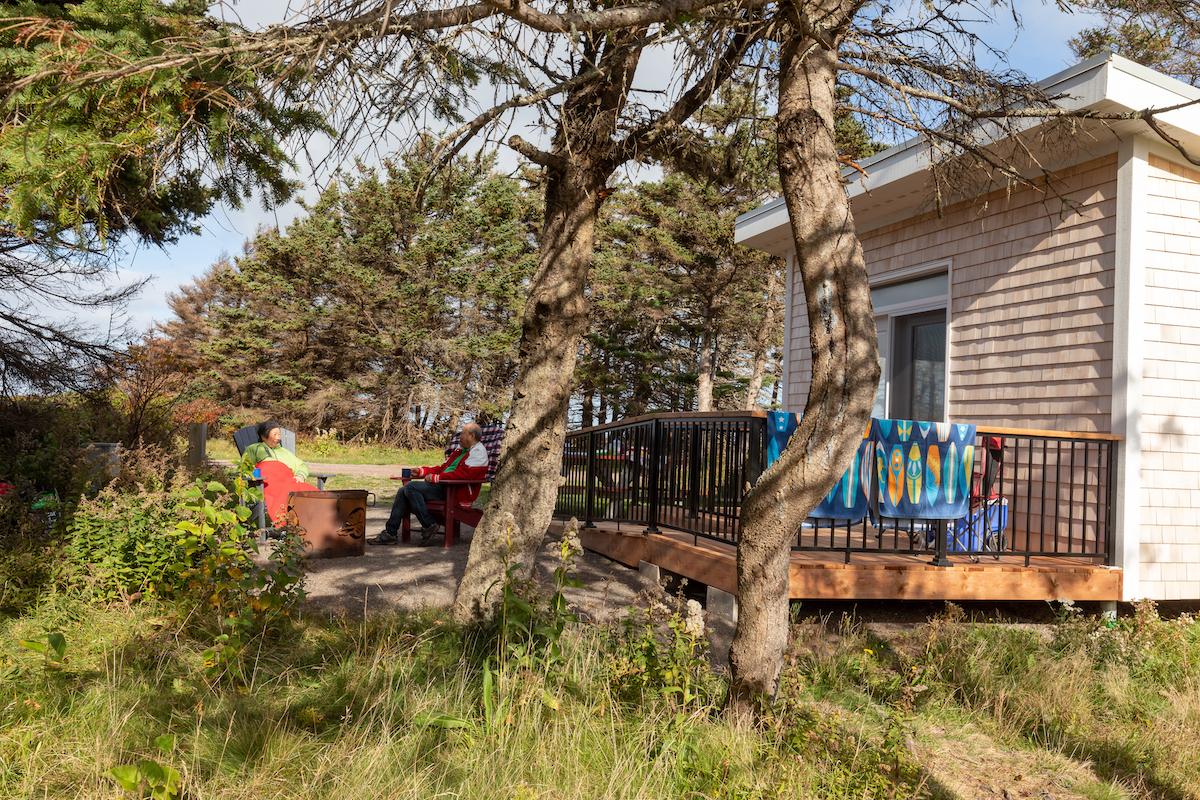
The goal of Bunkies is to lure urbanites to camp overnight in Prince Edward Island National Park/Parks Canada
Prince Edward Island National Park hopes its expanded Bunkie offering will entice more urbanites to visit overnight this summer.
The one-room cabins have a queen bed and double sleeping loft, table, storage, propane heat and deck. They sleep two to four people and are geared to young couples.
“It’s unique to us,” says Joel McKinnon, visitor services team lead for the park. “It’s trying to make it easy for people to come and make use of the park.”
The park debuted two Bunkies in Cavendish campground last year. This year there will be four in Cavendish and two in the Stanhope campground.
The park considered other roofed accommodation/comfort camping options, like Parks Canada’s MicrOcube cabins and teardrop-shaped Ôasis pods. It already has 14 family-friendly oTENTiks, a tent-cabin hybrid that sleep up to six. It decided to create something for itself that was inspired by sea shanties used by fishermen.
“Ultimately it just kind of provided that quaintness,” says McKinnon.

The park debuted two Bunkies last year and now has six/Parks Canada
Four Bunkies (two in each campground) come serviced with water and electricity and cost $128 Canadian ($100 USD) a night. Two unserviced Bunkies in Cavendish campground are $106.50 Canadian ($84) a night. They can be booked June to September.
The park didn’t increase its campground footprint for the Bunkies. Instead, it took over existing tent/RV campsites. “We didn’t use prime campsites because people are particular about their campsites,” says McKinnon.
The park is a major tourist attraction for the island and boasts broad, sandy beaches, red cliffs and wind-sculpted dunes. There are boardwalks, walking trails and paved, multi-use trails through coastal wetlands, saltwater marshes and Acadian forest.
It’s home to piping plovers, an endangered shorebird that nest along sandy beaches. A seasonal ban on domestic animals helps protect the birds. And the park is one of five spots where Parks Canada has launched the Coastie Initiative, asking citizens to take photos of the coast at specific locations so it can monitor erosion.
Established in 1937, Prince Edward Island National Park is one of Canada’s smallest national parks with about 23.84 square kilometres (9.3 square miles) of land after a 2021 expansion.

 Support Essential Coverage of Essential Places
Support Essential Coverage of Essential Places




Add comment